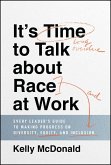The book's journey begins by exploring the historical evolution of financial privacy norms from pre-industrial times to today's digital age. It then delves into fascinating revelations about workplace dynamics and salary transparency, demonstrating how these factors directly influence organizational performance and employee behavior. A particularly compelling finding shows how current social taboos around money discussions create measurable economic inefficiencies and perpetuate income inequality.
The analysis extends to comparing Eastern and Western approaches to financial conversations, offering unique insights into cultural variations in money-related communication. What sets this work apart is its practical application of complex research, making it invaluable for business professionals, policy makers, and individuals alike.
The book combines quantitative economic analysis with sociological field studies, presenting actionable frameworks for navigating financial conversations in both professional and personal settings. It addresses contemporary challenges such as the impact of social media on financial privacy and changing attitudes toward wealth disclosure among younger generations, while maintaining an objective, evidence-based approach that bridges theoretical understanding with practical implementation.
Dieser Download kann aus rechtlichen Gründen nur mit Rechnungsadresse in A, B, BG, CY, CZ, D, DK, EW, E, FIN, F, GR, H, IRL, I, LT, L, LR, M, NL, PL, P, R, S, SLO, SK ausgeliefert werden.









